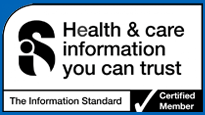If you want to try a talking therapy, ask your GP. They will know what's available locally and can help you decide which treatment is best for you.
Lots of GP surgeries provide counselling or therapy services on the NHS. If counselling or therapy isn't available at the surgery, your GP may refer you to a local psychological therapies service.
You may also be able to self-refer for counselling or therapy. This means you contact the psychological therapies service directly yourself. You may want to discuss it with your GP first.
Find your local psychological therapies (IAPT) service.
You may need to wait a few weeks before your treatment starts.
Psychological therapies on the NHS
The National Institute for Heath and Care Excellence (NICE) advises the NHS on which therapies are most suitable for mental health problems like anxiety.
Which therapy you are referred for depends on what emotional or mental health problem you have and how severe it is.
NHS therapies for depression
For mild to moderate depression, NICE recommends you are initially referred for guided self-help, or computerised cognitive behavioural therapy (CCBT).
Guided self-help is where you work your way through a self-help course with support from a healthcare professional.
With computerised cognitive behavioural therapy (CCBT) you work through a computer programme with the support of a healthcare professional. The programme helps you to understand your depression and find ways to overcome it.
Your GP may also suggest referring you to a group exercise class.
If none of the above helps, your GP should talk to you about the possibility of trying an anti-depressant medicine or a psychological therapy, such as cognitive behavioural therapy (CBT). CBT helps you to identify and stop negative thinking.
If you have moderate to severe depression NICE recommends you are offered both an antidepressant and a psychological treatment, such as CBT or interpersonal therapy. Interpersonal therapy helps you identify and address problems in your relationships with family, partners and friends.
NHS therapies for anxiety
If you are diagnosed with generalised anxiety disorder (GAD), you may be referred for a guided self-help course or group support meetings on the NHS.
GAD is when you can’t control your anxiety and worry about lots of different things a lot of the time.
If self-help or group meetings don’t help your anxiety, talk to your GP about whether a course of CBT would be helpful. This should be available on the NHS.
Your GP can also discuss anti-anxiety medication with you.
NICE also recommends psychological therapies for other mental health problems, including panic disorder, schizophrenia, bipolar disorder and borderline personality disorder.
Other places that offer therapy
Some charities offer cheap or free talking therapies or group support. These include:
- Cruse for bereavement care
- Mind for mental health problems
- Relate for relationship counselling
Some employers provide counselling for their employees and lots of colleges and universities offer free therapy to students who need it.
Paying for private therapy
If you can afford it, you can choose to pay for your therapy privately.
The cost of talking therapy varies and a one-hour session can cost between ÂŁ50 and ÂŁ100.
Your GP may be able to suggest a local private therapist or you can find a therapist online.
It’s essential to check that the therapist is listed on one of the registers of approved practitioners.
The following organisations have approved therapists:
It’s a good idea to talk to several therapists before you decide which one is right for you.
See Find the right therapist for you for more advice.




